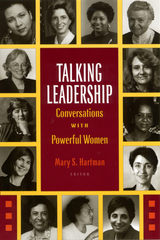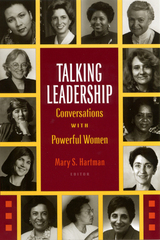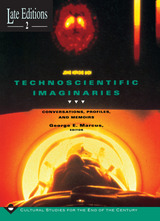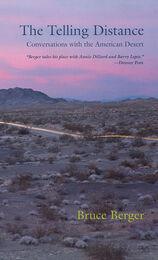7 start with T start with T

Combining elements of criticism with various modes of artistic expression, these responses take the form of reviews, letters, interviews, and in one case an imaginary TV programming schedule. Interspersed with—and sometimes literally interrupting—the video scripts, these contributions interact with one another on multiple levels and complement Fagin’s scripts. Historical, political, and theoretical issues dovetail, ricochet, and interplay in this book, revealing a multiplicity of voices, concerns, and cultural revelations.
Unique in its structure and intellectual approach, Talkin’ with Your Mouth Full will appeal equally to those who have seen Fagin’s videos and those who have not. Students of art history and cultural critique, and anyone interested in the ongoing dialogue between artists and theorists, will find particular value in this book.
Contributors. Gregg Bordowitz, Constance DeJong, Leslie Dick, Steve Fagin, Barry Gifford, Victoria Gill, Bill Horrigan, Bertha Jottar, Ivone Margulies, Patricia Mellencamp, Margaret Morse, Constance Penley, Vicente L. Rafael, Mark Rappaport, Andrew Ross, Vivian Sobchack, Trinh T. Minh-ha, John Welchman, Peter Wollen

Talking Leadership presents a though-provoking look at differences and commonalities in the lives and leadership approaches of some of today's outstanding women in areas ranging from philanthropy to politics, and from business to academia. Regardless of their backgrounds and areas of expertise, these women are committed to social change--change that includes improving women's lives and options.
Well beyond personal details and entertaining anecdotes, these conversations capture a variety of fascinating experiences and insights reflecting what it is like to be a woman and a major leader in America at the close of the twentieth century. Many of these women hold positions in which womanhood sets them apart--not infrequently in uncomfortable ways. Talking Leadership gives testimony not only to how far women have come, but also how far they still have to go to claim their places as leaders.

Whether we love it, hate it, or use it just to pass the time, most adults in the United States are watching more television than ever, up to four hours a day by some estimates. Our devotion to commercial television gives it unprecedented power in our lives.
Advertisers and television executives want us to spend as much time as we can in front of our sets, for it is access to our brains that they buy and sell. Yet the most important effect of television may be one that no one intends-accelerated destruction of the natural environment.
Consuming Environments explores how, with its portrayal of a world of simulated abundance, television has nurtured a culture of consumerism and overconsumption. The average person in the US consumers more than twice the grain and ten times the oil of a citizen of Brazil or Indonesia. And people in less industrialized countries suffer while their resources while their resources are commandeered to support comfortable lifestyles in richer nations.
Using detailed examples illustrated with images from actual commercials, news broadcasts, and television shows, and authors demonstrate how ads and programs are put together in complex way s to manipulate viewers, and they offer specific ways to counteract the effects of TV and overconsumption's assault on the environment.

Insightful, good-humored essays on the possibilities of alien life and the uses of space exploration, based on an astrobiologist’s everyday conversations with his fellow humans—taxi drivers, to be precise. “This is a joy to read.” —Publishers Weekly
If you’ve ever sat in the back seat of a taxi, you know that cabbies like to talk. Sports or politics, your job or theirs, taxi drivers are fine conversationalists on just about any topic. And when the passenger is astrobiologist Charles Cockell, that topic is usually space and what, if anything, lives out there.
Inspired by conversations with drivers all over the world, Taxi from Another Planet tackles the questions that everyday people have about the cosmos and our place in it. Will we understand aliens? What if there isn’t life out in the universe? Is Mars our Plan B? And why is the government spending tax dollars on space programs anyway? Each essay in this genial collection takes questions like these as a starting point on the way to a range of insightful, even poignant, observations. Cockell delves into debates over the inevitability of life and looks to both human history and scientific knowledge to consider what first contact will be like and what we can expect from spacefaring societies. He also offers a forceful argument for the sympathies between space exploration and environmentalism.
A shrewd and entertaining foray into the most fundamental mysteries, Taxi from Another Planet brings together the wisdom of scientific experts and their fellow citizens of Earth, the better to understand how life might unfold elsewhere.

“Timely…Cockell makes us consider a gamut of new possibilities that boggle the mind.”
—Bruce Dorminey, Forbes
“Taxi from Another Planet conveys an array of ideas—all fascinating, and some profound—with a light touch and utter clarity. Accessible to anyone curious about the cosmos.”—Martin Rees, coauthor of The End of Astronauts
“Entertaining and informative in equal measure.”—Morgan Hollis, Nature Astronomy
If you’ve ever sat in the back seat of a taxi, you know that cabbies like to talk. Sports or politics, your job or theirs, taxi drivers are fine conversationalists on just about any topic. And when the passenger is astrobiologist Charles Cockell, that topic is usually space and what, if anything, lives out there.
Inspired by conversations with drivers all over the world, Taxi from Another Planet tackles the questions that everyday people have about the cosmos and our place in it. Will we understand aliens? What if there isn’t life out in the universe? Is Mars our Plan B? And why is the government spending tax dollars on space programs anyway? Each essay in this genial collection takes questions like these as a starting point on the way to a range of insightful, even poignant, observations. Cockell delves into debates over the inevitability of life and looks to both human history and scientific knowledge to consider what first contact will be like and what we can expect from spacefaring societies. He also offers a forceful argument for the sympathies between space exploration and environmentalism.
A shrewd and entertaining foray into the most fundamental mysteries, Taxi from Another Planet brings together the wisdom of scientific experts and their fellow citizens of Earth, the better to understand how life might unfold elsewhere.

In these penetrating essays, twenty-four distinguished contributors from a broad range of fields present the voices of the scientists themselves—through interviews, conversations, and memoirs. We hear from Lithuanian physicists who discuss science after Communism and their own fantasies about what Western science is; a Japanese-American woman struggling with her ambivalence over designing nuclear weapons; political activists in India who examine relations among science, environmental politics, and government ideology in the aftermath of the Bhopal disaster; and many others, including biologists, physicians, corporate researchers, and scientists working with virtual reality and other cutting-edge technologies.
The contributors to this volume are Mario Biagioli, Maria E. Carson, Gary Lee Downey, Joseph Dumit, Michael M. J. Fischer, Mary-Jo DelVecchio Good, Hugh Gusterson, Diana L. L. Hill, James Holston, Herbert C. Hoover, Jr., Gudrun Klein, Leszek Koczanowicz, Irene Kuter, Kim Laughlin, Rita Linggood, George E. Marcus, Kathryn Milun, Livia Polanyi, Christopher Pound, Simon Powell, Paul Rabinow, Kathleen Stewart, Allucquere Rosanne Stone, and Sharon Traweek.

READERS
Browse our collection.
PUBLISHERS
See BiblioVault's publisher services.
STUDENT SERVICES
Files for college accessibility offices.
UChicago Accessibility Resources
home | accessibility | search | about | contact us
BiblioVault ® 2001 - 2025
The University of Chicago Press









